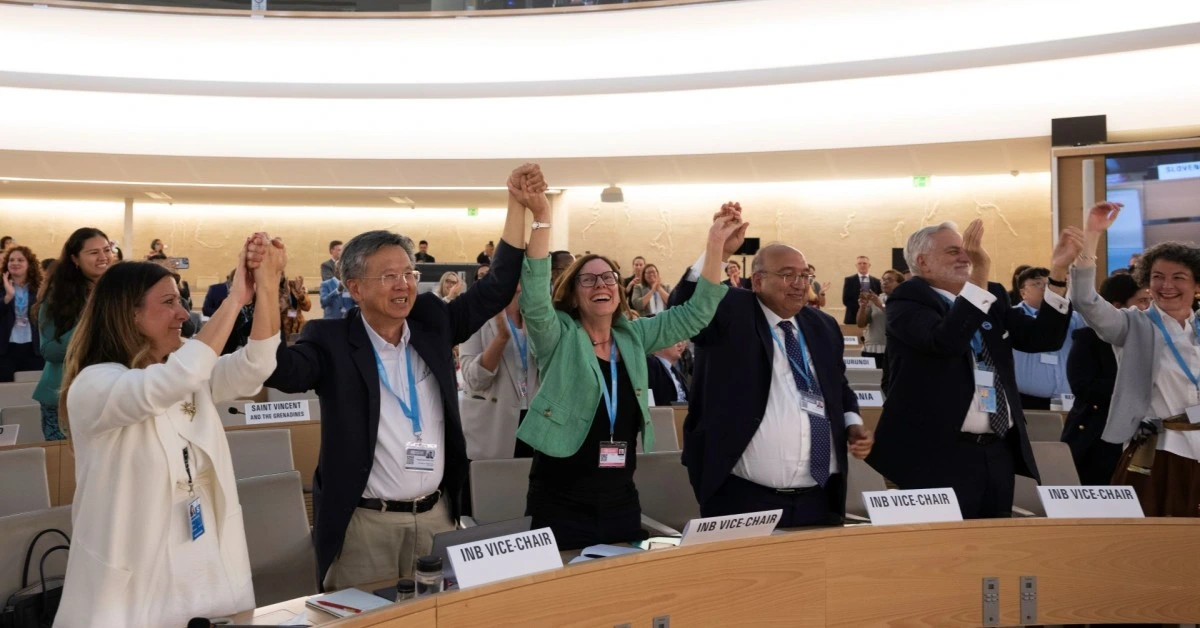
SWITZERLAND – In a significant move to bolster global health security, 124 member states of the World Health Organization (WHO) have formally adopted the first international pandemic agreement.
This landmark decision was made on May 20 during the 78th World Health Assembly in Geneva, Switzerland.
This legally binding accord aims to strengthen international cooperation and ensure a more equitable response to future pandemics.
Often referred to as the Pandemic Treaty or Pandemic Accords, the agreement was finalized following a formal vote held on May 19.
According to WHO Director-General Dr. Tedros Adhanom Ghebreyesus, the agreement signals a safer world through international cooperation and shared responsibility.
“The nations of the world made history in Geneva today,” declared WHO Director-General Dr. Tedros Adhanom Ghebreyesus.
“In reaching consensus on the Pandemic Agreement, not only did they put in place a generational accord to make the world safer, they also demonstrated that multilateralism is alive and well.”
Dr. Tedros extended appreciation to the INB Bureau members who led the process, especially Co-Chairs Ms. Precious Matsoso (South Africa) and Ambassador Anne-Claire Amprou (France), as well as Vice-Chairs from Brazil, Egypt, Thailand, and Australia.
Former officials from the Netherlands, Japan, and Egypt were also acknowledged for their earlier contributions.
The Pandemic Agreement is designed to boost countries’ capacity to detect, respond to, and recover from future outbreaks.
It builds on hard lessons learned from the COVID-19 crisis and aims to prevent a repeat of the chaos that gripped the globe.
The agreement introduces several key measures:
Despite broad support, the United States did not participate in the agreement, following its withdrawal from the WHO earlier this year.
Critics, including U.S. Health Secretary Robert F. Kennedy Jr., expressed concerns about the WHO’s effectiveness and called for alternative global health frameworks.
The agreement emphasizes national sovereignty, stating that the WHO cannot mandate specific health measures like lockdowns or vaccinations. It also calls for increased funding from member states to support its initiatives.
XRP HEALTHCARE L.L.C | License Number: 2312867.01 | Dubai | © Copyright 2025 | All Rights Reserved